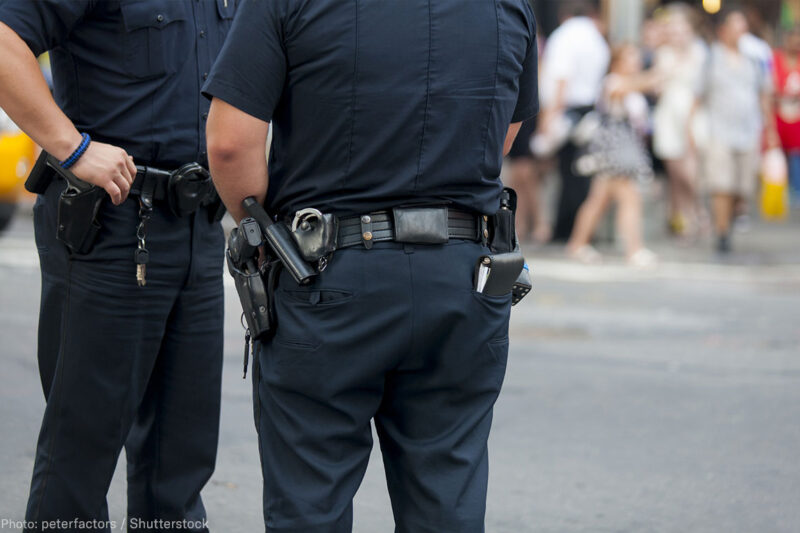
Walking is a lot of things. It’s great exercise. It’s a cost-free mode of transportation. But for Black people in Jacksonville, Florida, evidence suggests that it’s leading to discriminatory encounters with police.
Black pedestrians in Jacksonville are ticketed a stunning three times as often for pedestrian violations, like jaywalking, as white pedestrians, according to ProPublica and The Florida Times-Union. In a recently published exposé, the outlets examined 2,200 tickets issued in Jacksonville between 2012 and 2016. They found that although representing only 29 percent of the city’s population, Black people received a whopping 55 percent of all pedestrian tickets. Disproportionate enforcement also occurred for lesser known offenses. For instance, 68 percent of people who received tickets for “failing to cross the road at a right angle or the shortest route” were Black.
In Jacksonville, crossing the street on a yellow light or walking on the street where there is no sidewalk can result in getting a ticket with a $65 price tag. If you are poor or working but struggling to make ends meet, this is an especially hard pill to swallow. Failure to pay may impact your credit score or possibly result in suspension of your driver’s license.
Overpolicing of communities of color leads to one thing: the overpolicing of communities of color. That’s unacceptable and illegal.
The disparate citation rates in Jacksonville raise serious concerns about racial profiling. The ProPublica/Times-Union story even includes pictures of police officers doing the exact same thing that Black pedestrians have been ticketed for.
The issue of disparate enforcement in the state of Florida is far from new.
The ACLU analyzed the rate of stops and tickets for seatbelt violations for 2014. Statewide, Black motorists were stopped and ticketed almost twice as much as white motorists based on data from 147 different law enforcement agencies. In some places, data showed Black motorists were as much as a staggering four times as likely to be ticketed.
In Tampa, Black children as young as 3 years old were targeted for stops while riding a bicycle and ticketed for things like “bike riding with no hands.” From 2003 to 2015, more than 10,000 bike tickets were issued — 79 percent of them to Black residents. Black people, however, compose only 26 percent of the Tampa population. In 2016, the Department of Justice’s Office of Community Oriented Policing Services issued a scathing report indicating that the tickets burdened Black cyclists in Tampa and did nothing to reduce crime or improve safety.
Does law enforcement have a compelling reason why they continue to overpolice communities of color? No, they do not.
The reason given by Jacksonville law enforcement for their pedestrian ticket enforcement practices is that it reduces pedestrian fatalities. But city officials in Jacksonville have not backed up that reasoning with evidence showing, for example, that the rate of pedestrian fatalities was actually lowered over time as a result of whatever practices are leading to such high rates of ticketing Black people for pedestrian offenses. Law enforcement has likewise not presented data showing that such interactions have reduced crime by, for example, leading to the apprehension of crime suspects or seizure of weapons and contraband.
Overpolicing of communities of color leads to one thing: the overpolicing of communities of color. That’s unacceptable and illegal. It’s time for Florida law enforcement agencies to make changes to the way citizens of color are treated. Only by embracing reform can police in Florida protect and serve everyone equally.




